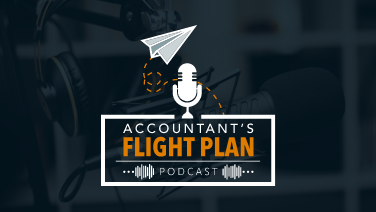
Buying a CPA Practice in Washington, D.C. – The Ultimate Guide
What you need to know.
If you are about to embark on buying a CPA Practice in Washington, D.C., then this guide will give you a great “lay of the land” of the city. It then goes into the high-level approach that we’ve seen past buyers of CPA practices take to make sure that they find the right practice for their particular strengths and talents.
The Neighborhood Breakdown:
D.C. is made up of eight wards, all with unique neighborhoods and thriving business districts. Ward 1 is comprised of historical townhomes and boasts entertaining nightlife while being home to the National Zoo and Howard University. This ward is rich in both culture and history.
Ward 2 is best known for the National Mall, White House and of course many noteworthy museums. This district is a popular tourist destination. This is a relatively affluent ward with its mix of federal offices, historic townhomes, apartments and stand-alone mansions.
Wards 3 and 4 are primarily residential centers. Ward 3 is comprised of a series of villages with apartment buildings, townhomes and single-family homes. These neighborhoods have booming commercial districts that seem to be expanding with high-end restaurants and shops.
Ward 5 is very mixed-use, with a great deal of residential neighborhoods in conjunction with high-rise industrial buildings. This ward is also the home to the National Arboretum and several private colleges.
Ward 6 is considered the heart of the city. This neighborhood is full of character and diversity and at its center is the historic Capitol Hill neighborhood. This neighborhood is home to the Library of Congress and the Old Naval Hospital.
Ward 7 is considered one of the greener wards in the D.C. area. There are plenty of parks and gardens in this ward. There are also plenty of single-family homes nestled among tree lined streets in this ward, rich in civil war history. This part of the city is a perfect departure from the hustle and bustle of the city and boasts stretches of waterfront.
Finally, there is Ward 8, which was once comprised mostly of farmland. This ward is historically recognized for being the birthplace of one of Washington’s first suburbs. Today, this ward is filled with garden apartments, townhomes and bungalows.
D.C. has a competitive job market and has ranked number one in a number of categories by Forbes and Smart Asset. Bon Appetit even rated D.C. as the Number One Restaurant City in 2016. It is a booming city for politicians and entrepreneurs alike.
Because the Washington, D.C. area is so dispersed and large, that bodes well for CPA firms. Accounting firms in bigger cities tend to have a higher annual gross and sale price than those in more rural areas. For a more in-depth discussion on how accounting practices are valued, please read our white paper on the major factors that impact pricing – CPA PRACTICE VALUATION FACTORS.
Who are we and how can we help?
Founded in Charleston, SC, Poe Group Advisors is the premier accounting practice brokerage firm in the industry. With practices located throughout the United States and Canada, we are known for our seamless process as well as our efficient and diligent approach to facilitating the buying and selling of CPA firms. Our team of experts has a deep knowledge of the accounting industry. Brannon Poe, who founded Poe Group Advisors, started his career with Ernst & Young and was a CPA in public practice for several years before he began brokering deals in 2003. We have become the industry leader when it comes to successful sales and transitions. We know what it takes to match the right buyer and seller to ensure the best possibility for practice growth and buyer takeover. We believe in our process and have valuable advice to guide you through every step of a practice purchase. We also help practice owners who are a few years away from selling and want to start doing some succession planning. For more information, check out succession planning guide.
Why do people buy any business?
In our experience, the answer to this question is freedom. In owning your own practice, or any business, you have the freedom to set your own hours, control your earnings and work with the people you choose. That being said, you also have the freedom to:
- Overwork
- Underwork
- Lose money
- Make mistakes
- Get off-task
To work for yourself, you must keep in mind that you have to be someone capable of self-starting. As the saying goes, with power comes great responsibility, and that is true. In owning your own firm, you have a lot of deciding power, but you have to be wise about time management, task setting and your goal attainment. If you are capable of being your own boss, it is absolutely worth the risks.
Does my mindset matter?
You can probably assume the answer is yes. Mindset, in my opinion, always matters. It matters a lot! You may be a phenomenal certified public accountant, but that doesn’t always translate into a good business owner, and make no mistake, owning a firm is like owning any other business. You must be the master of many tasks. As an owner you will be in charge of marketing, sales, hiring and firing, management of staff and the overall direction of your practice. This may seem obvious for most and we hope that is the case, but you need to see yourself being good at much more than the essential number crunching aspect of accounting. If you think you can be a good CPA and business owner in tandem, check out our white paper on what it takes to be successful by visiting https://poegroupadvisors.com/buying-a-cpa-practice-do-you-have-what-it-takes.
Questions!
We hope you are prepared to ask a lot of questions, not just of current owners of CPA firms, but also of yourself. It is important to know exactly what you are looking for in terms of office atmosphere, client profile, scope of work and more. This is the best way to make a buyer/seller match that satisfies both parties. The seller needs to know you have what it takes to takeover their practice while keeping clients and employees happy. You need to know you’re looking at a business you are capable of owning and growing. If you’re not sure what you should be contemplating, we have several questions to help guide you through the initial matching process.
What questions should I be asking of myself before I begin my search for a firm?
- Where does my practice need to be in three years’ time for me to be satisfied with my purchase?
- What are my personal and professional strengths?
- What are my personal and professional weaknesses?
- Where do I want to live and am I willing to relocate?
- What is a deal killer for me? (For example, would you buy a practice that largely works with a niche you are unfamiliar with?)
- Who do I want as a client?
- What sort of fee structure do I want to have?
What questions should I ask of the practices I find myself interested in buying?
These are important to ask before diving into the books of a practice. Asking these on the front-end can help save you time and frustration. You may be able to weed out several firms of interest based on the answers to these high-level questions.
- What is the cash flow to owner?
- What are the owner hours and how does that impact the firm revenue?
- Does the firm have good employee retention?
- What is the staff skill set?
- Does the team seem collaborative and friendly?
- What roles remain to be filled?
What should I focus on when initially evaluating a practice to buy?
Answer: progress not perfection. You should be aware that no firm is going to be a perfect fit. This is true even of a practice you start from scratch. You need to be realistic in finding a practice where you feel you can make reasonable progress in areas you find to be lacking. Purchasing a practice allows you to have an immediate client base and income, and with the right fit, can be a less stressful way to own a CPA practice.
You will want to focus on these seven key areas when deciding if a practice is a good fit for you:
- Focus on the client base and the role they would expect you to play as new owner. Can you relate to their needs and do you feel you have the skill set to bring value to those services?
- You must trust the seller. A good connection to the current owner is key to understanding the practice.
- Know your seller’s background and ascertain if your skill sets align.
- Pay attention to the management style of the practice and grasp an understanding of your own. Do you think you will be able to manage the current number of staff? Is the environment structured or flexible? This can be important when determining competitive threats and hiring and firing needs of the firm.
- Understand the technical skills needed within the practice
- Know the key risks to the practice. The most common we see are:
- A few key clients that make up most of the revenue stream
- Competitive staff threats
- Poor transition tactics where open, honest and thorough communication with staff and clientele is not initially practiced
- Know the growth potential of the practice. Purchasing a practice that needs some attention can be a great way to buy-in. You bring a new eye and sometimes key changes that a seller no longer has energy or time to invest, which could mean higher profit margins. We see it happen all the time. Do not always be dissuaded by a practice that isn’t profiting how you would like.
What are the key areas most buyers focus on during due diligence?
Due diligence isn’t as scary as it sounds. We assure you that this process is not like a formal audit and in many cases can be carried out in a matter of days.
You want to focus on the order of this process, starting first with high-level information and working your way down to the detailed information. Taking in a big picture of the practice is vitally important.
These are the areas most buyers choose to focus on during due diligence:
- Getting to know the seller
- Becoming familiar with staff capabilities
- Learning the clientele ages and industries
- Reviewing the practice fee structure and finances.
- Tying of reported revenue to bank statements and/or tax returns
- Reviewing accounts receivable
We always encourage our buyers to trust their gut. With the right questions, you will know if it’s a good fit.
What is our value?
We know that an intermediary can add an immeasurable amount of value to a deal. We work hard to guide buyers and sellers into suitable arrangements that minimize hassle for both parties. We ensure appropriate matches so that skill sets align between buyer and seller. We want everyone to be successful and we are your connection for acquiring good financing as well as contract negotiations. At Poe Group Advisors, we always provide our clients with concierge level service and we do the following very well:
- Buffer negotiations and keep them going at a reasonable pace
- Keep clients focused on the high-level decisions
- Provide guidance to both parties throughout the entire process
- Coach our clients about successful practices for transition and integration to ensure that they maximize revenue after purchase
- We are actively and aggressively targeting accounting practices for sale in the D.C. area. If you would like notifications when new CPA practices become available in D.C., please register at: https://poegroupadvisors.com/buying/interestedbuyer/
One last note:
“It’s far better to buy a wonderful company at a fair purchase price than a fair company at a wonderful price.” ~ Warren Buffet






